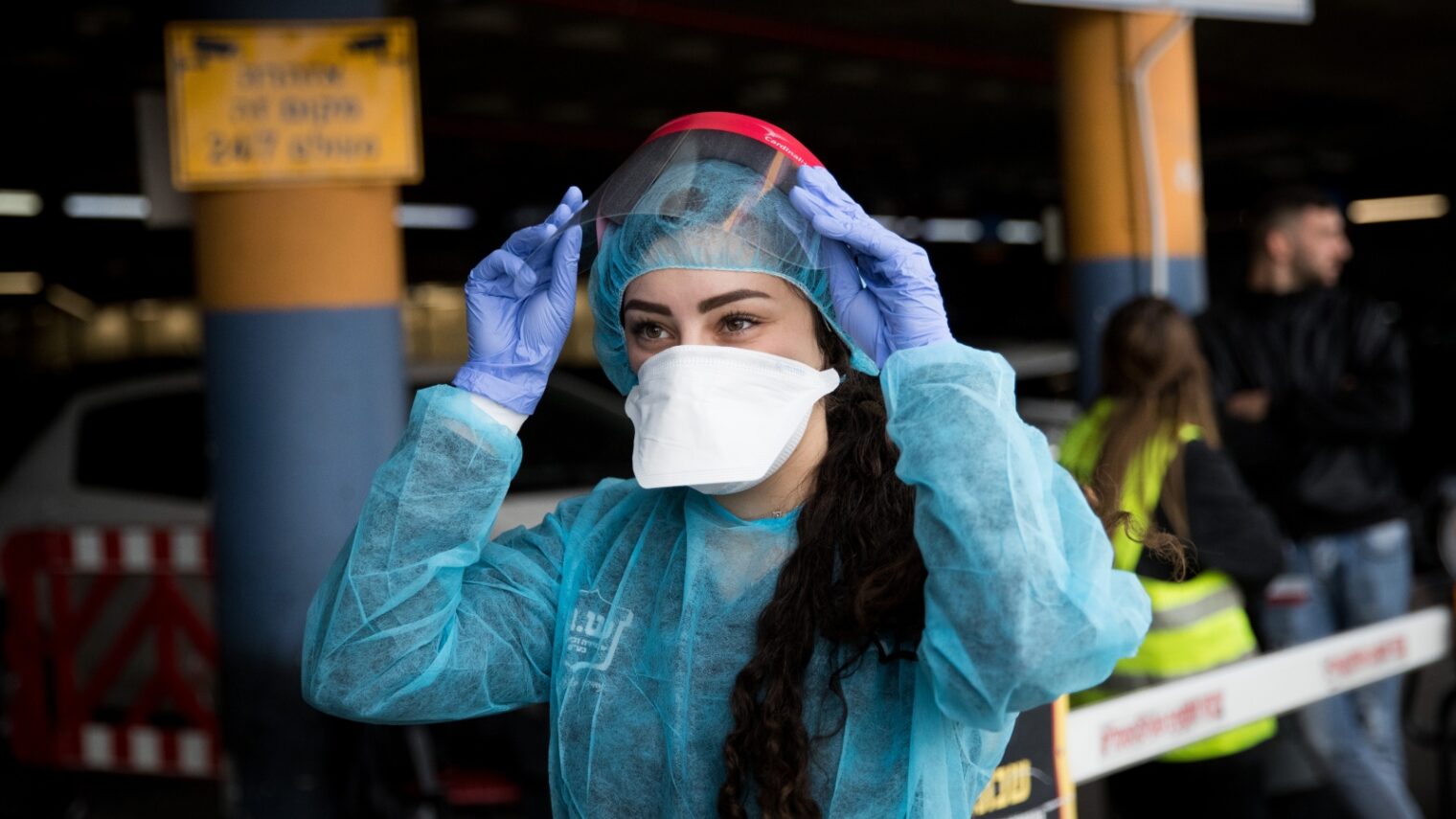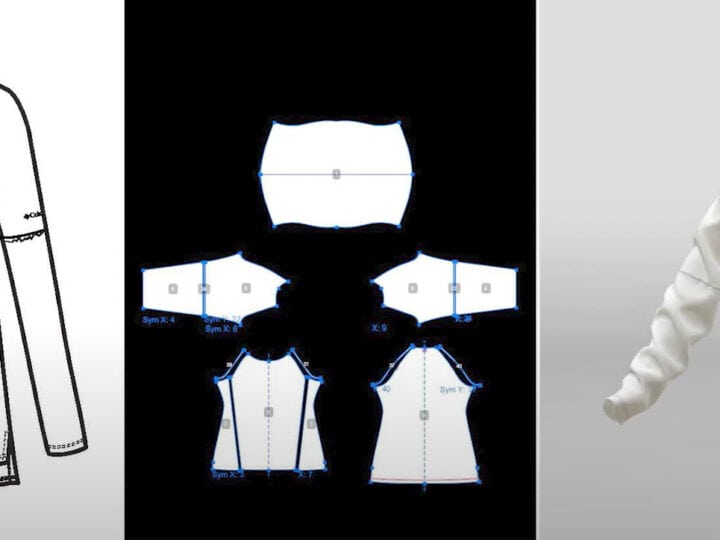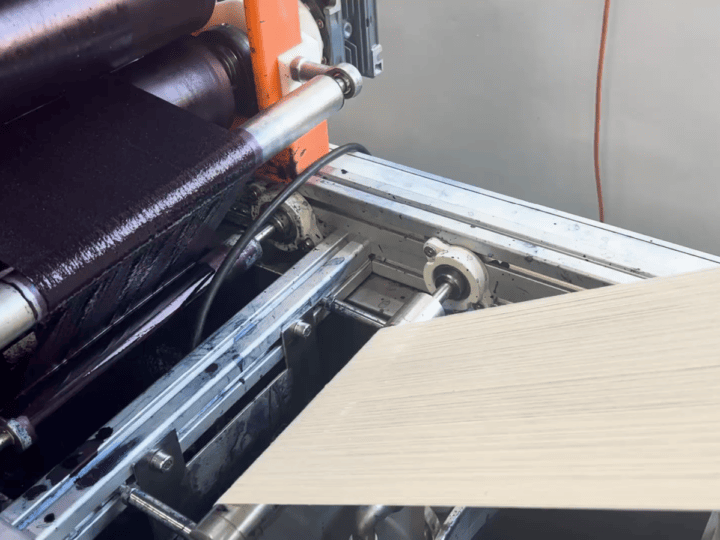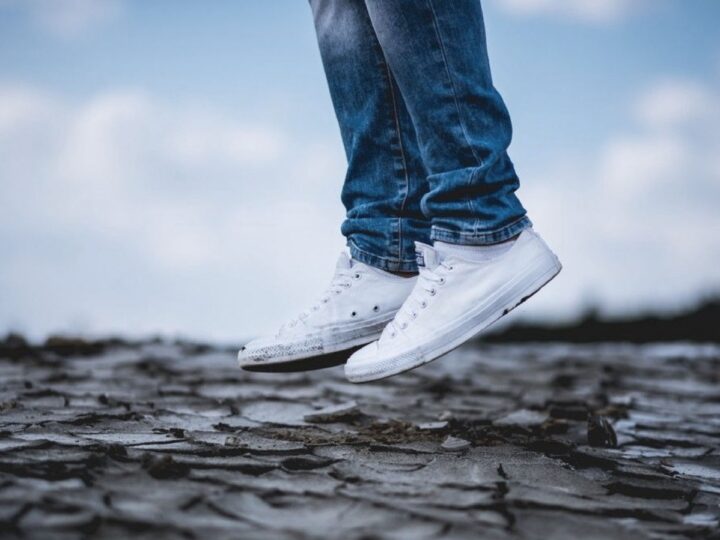As the Wuhan coronavirus outbreak continues to spread, two Israeli companies are finalizing development of revolutionary antiviral reusable facemasks.
“Israel has technologies that can support controlling this epidemic,” says Liat Goldhammer-Steinberg, CTO of Sonovia in Ramat Gan.
More than 100 people are reported dead from complications of Wuhan coronavirus, dubbed 2019-nCoV.
The virus is spread by air and direct contact. The World Health Organization reports approximately 4,200 cases of infection since December 31. Most of the cases are in China. A few have been confirmed in 15 additional countries.
Because there is no vaccine or treatment for 2019-nCoV, personal protective equipment is an important way to combat the transmission of the virus and avoid a pandemic.
Disposable facemasks cannot block all pathogens and do not kill them. A used and discarded mask can even become a vector for disease as the pathogens multiply in its fibers.
That’s why washable, reusable masks with anti-pathogen properties could provide a potent prevention tool against the 2019-nCoV and other coronaviruses that have evolved into more severe illnesses, such as SARS and MERS.
Sonovia seeking partners
Sonovia’s ultrasonic fabric-finishing technology, invented by two Bar-Ilan University chemistry professors, mechanically infuses antiviral, antimicrobial zinc and copper oxide nanoparticles into textiles for facemasks and other protective products.
Sonovia recently received a European Commission Horizon 2020 grant and the technology has won several prizes in China.
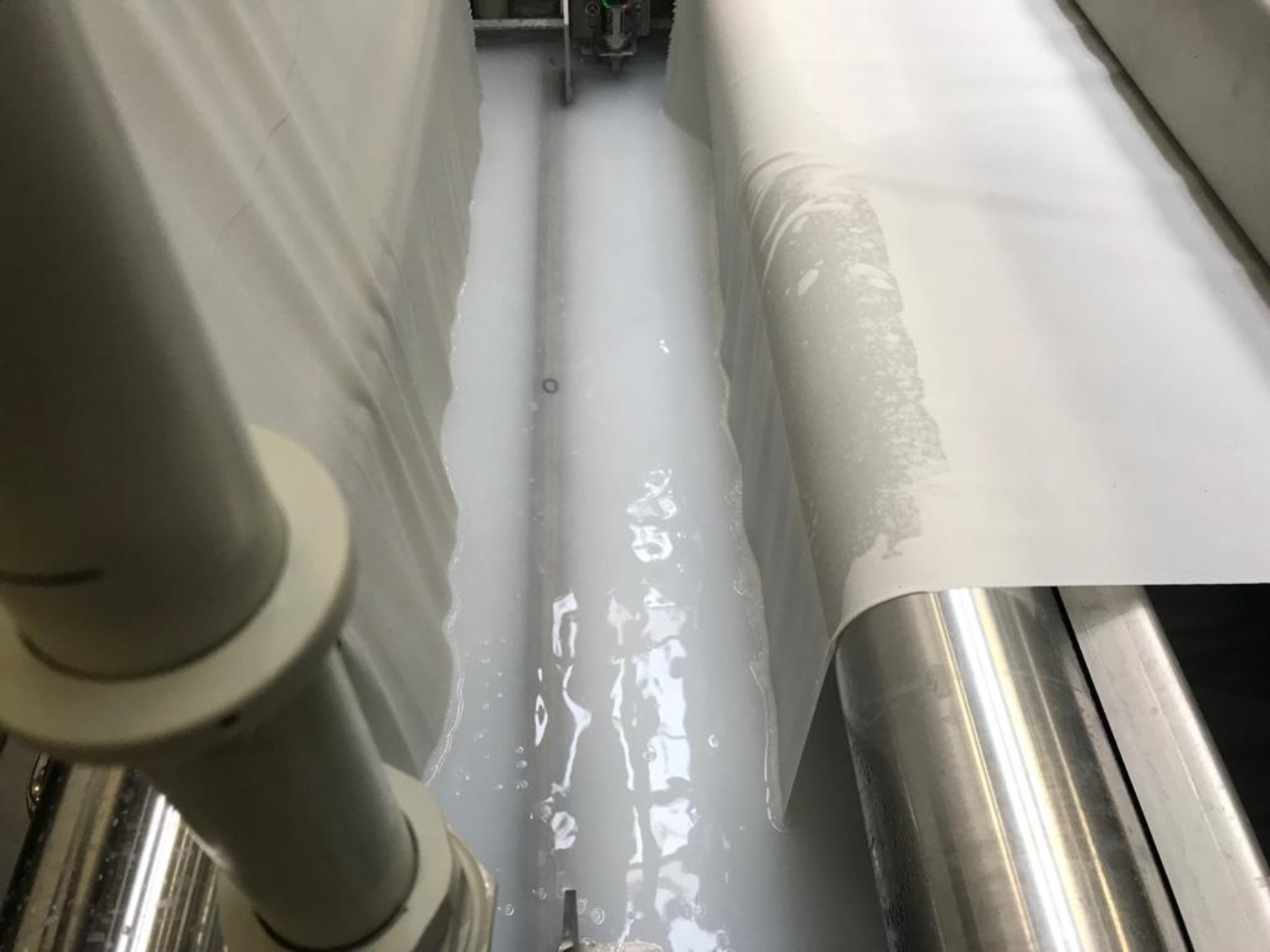
Tests have shown that Sonovia’s treated textiles work against six types of bacteria including E. coli and Staph. Effectiveness lasts for up to 100 washes at 75°C (167°F) or 65 washes at 92°C (197°F).
The impregnated polyester-cotton fabric has been shown effective against some strains of influenza. It has not been tested for effectiveness against the current coronavirus.
Once a lab that can do this test is identified, the process could take eight weeks, says Goldhammer-Steinberg.
“We are not commercialized yet,” she stresses. “But we have a prototype machine we are willing to put into operation using treated yardage from our R&D product — if we have a partner and interest.”
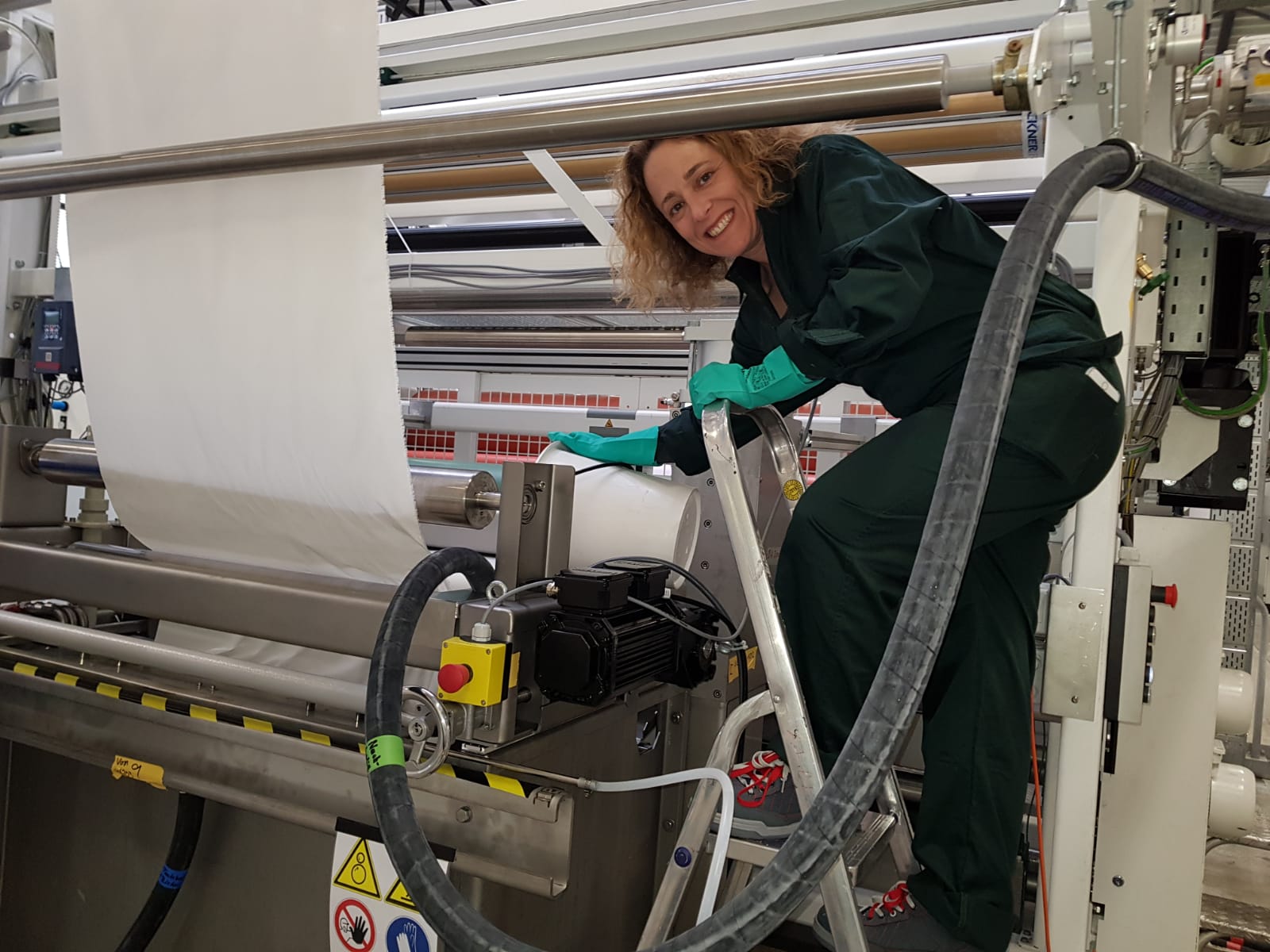
Interest is not a problem: Sonovia hosted visitors from China earlier this week and is receiving “nonstop calls” following media exposure.
Goldhammer-Steinberg says there is enough treated fabric available to make about 5,000 to 10,000 reusable face masks. These would not be for sale, rather for partners to distribute as an emergency measure.
“Right now, there is a shortage of supplies [in affected countries] so we could help decrease that stress. Even if there is a remote chance it could help, it is worth trying,” she tells ISRAEL21c.
“We are actively reaching out to collaborative investors and partners from around the world because we believe there is high potential for our products to save lives.”
For more information and collaborative opportunities, contact Dr. Jason Migdal at Sonovia: marketing@sonoviatech.com
Argaman’s Bio-Block mask
Jerusalem-based Argaman is nearing commercialization of a reusable, washable, breathable antiviral facemask called Bio-Block.
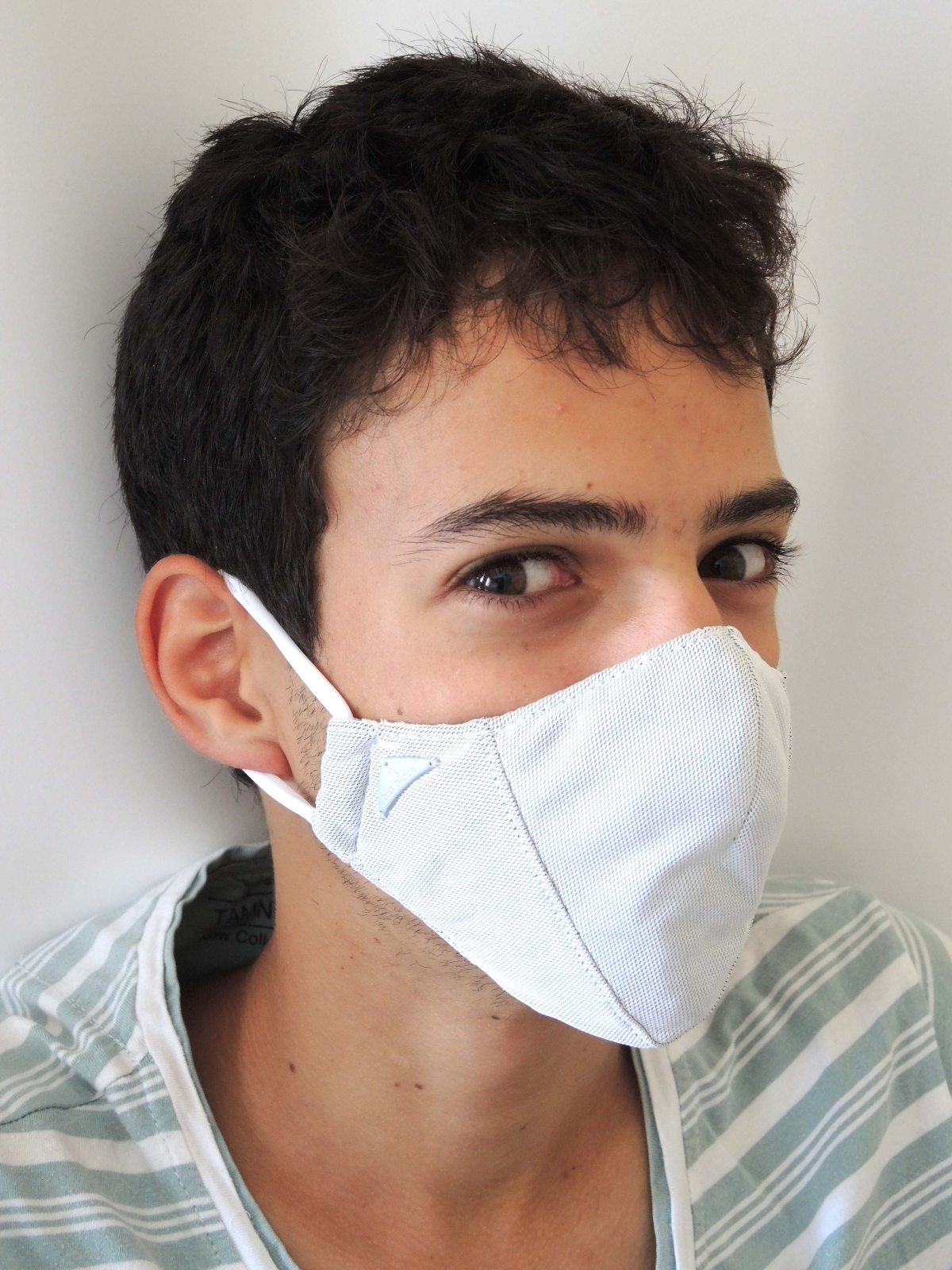
According to founder and CEO Jeff Gabbay, a textile engineer with a background in pathology and infectious diseases, Bio-Block is a layered mask.
It’s made from a proprietary cotton embedded with accelerated copper oxide particles, and a nanofiber textile that blocks pathogens.
“The pores of the nanofiber pad are so small that bacteria cannot go through it — nor a droplet that contains a live virus –and our EPA-approved 100% CottonX fibers destroy the pathogens that come in contact with it,” Gabbay says.
“The mask not only blocks the virus but kills the viruses going both to the wearer and away from the wearer in case the wearer is infected,” he explains.
An independent lab found that CottonX remains effective against Staph and E. coli bacteria for 50 industrial washings or 100 home washings.
A hospital test sponsored by the US Centers for Disease Control found that CottonX bedding and gowns in the ICU reduced multi-drug resistant pathogens by 50%. This study is soon to be published, says Gabbay.
Like the Sonovia textile, CottonX has not been tested for effectiveness against the 2019-nCoV coronavirus.
The first 20,000 Bio-Block masks are in production in Argaman’s Jerusalem facility and will retail for about $50. They will be available in about two months.
An Amazon store will be opened once the masks and other protective products are ready, says Gabbay. Meanwhile, inquiries about orders can be sent to info@argamantech.com.




